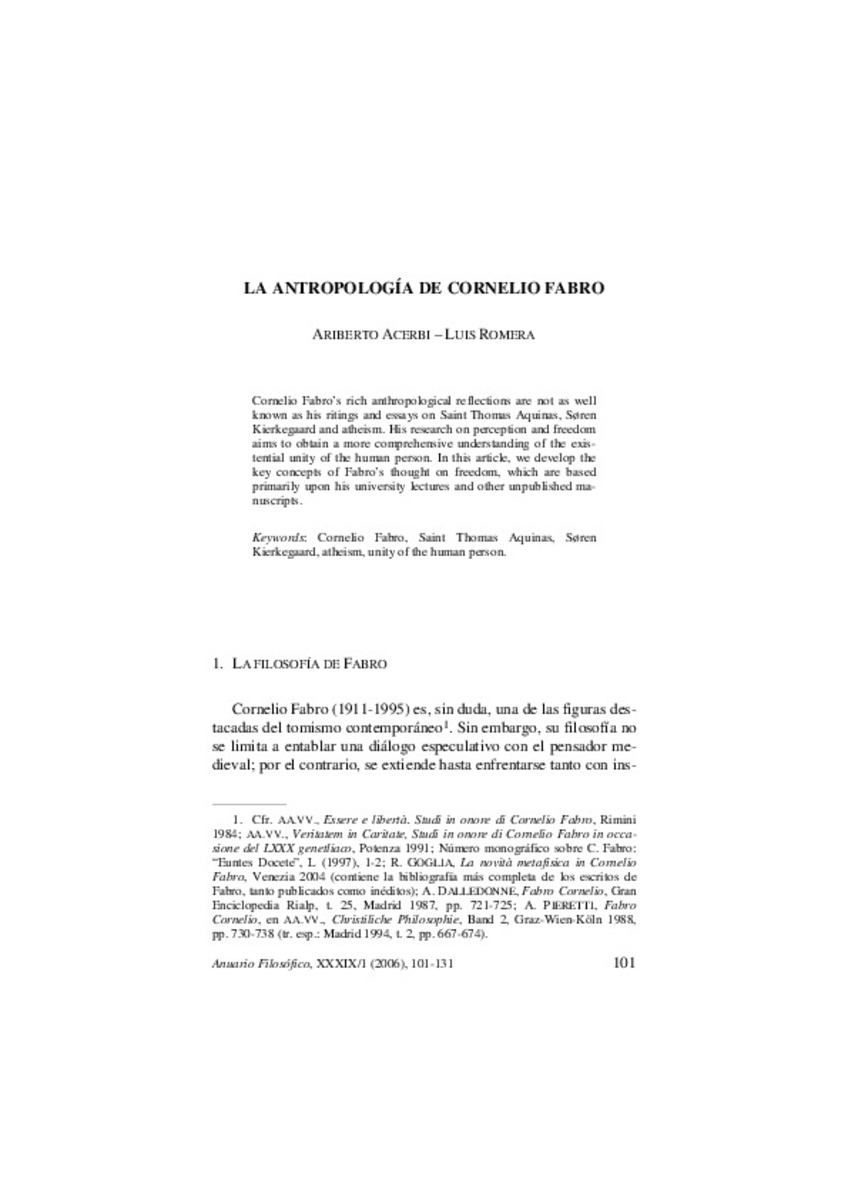Full metadata record
| DC Field | Value | Language |
|---|---|---|
| dc.creator | Acerbi, A. (Ariberto) | |
| dc.creator | Romera, L. (Luis) | |
| dc.date.accessioned | 2011-02-02T08:54:49Z | - |
| dc.date.available | 2011-02-02T08:54:49Z | - |
| dc.date.issued | 2006 | - |
| dc.identifier.citation | Anuario Filosófico, 2006 (39), 101-131 | es_ES |
| dc.identifier.issn | 0066-5215 | - |
| dc.identifier.uri | https://hdl.handle.net/10171/16008 | - |
| dc.description.abstract | Cornelio Fabro’s rich anthropological reflections are not as well known as his writings and essays on Saint Thomas Aquinas, Søren Kierkegaard and atheism. His research on perception and freedom aims to obtain a more comprehensive understanding of the existential unity of the human person. In this article, we develop the key concepts of Fabro’s thought on freedom, which are based primarily upon his university lectures and other unpublished manuscripts. | es_ES |
| dc.language.iso | spa | es_ES |
| dc.rights | info:eu-repo/semantics/openAccess | es_ES |
| dc.subject | Fabro, Cornelio | es_ES |
| dc.subject | Tomás de Aquino | es_ES |
| dc.subject | ateísmo | es_ES |
| dc.subject | unidad de la persona | es_ES |
| dc.title | La antropología de Cornelio Fabro | es_ES |
| dc.type | info:eu-repo/semantics/article | es_ES |
| dc.identifier.doi | 10.15581/009.39.29310 | es_ES |
Files in This Item:
Statistics and impact
Items in Dadun are protected by copyright, with all rights reserved, unless otherwise indicated.






